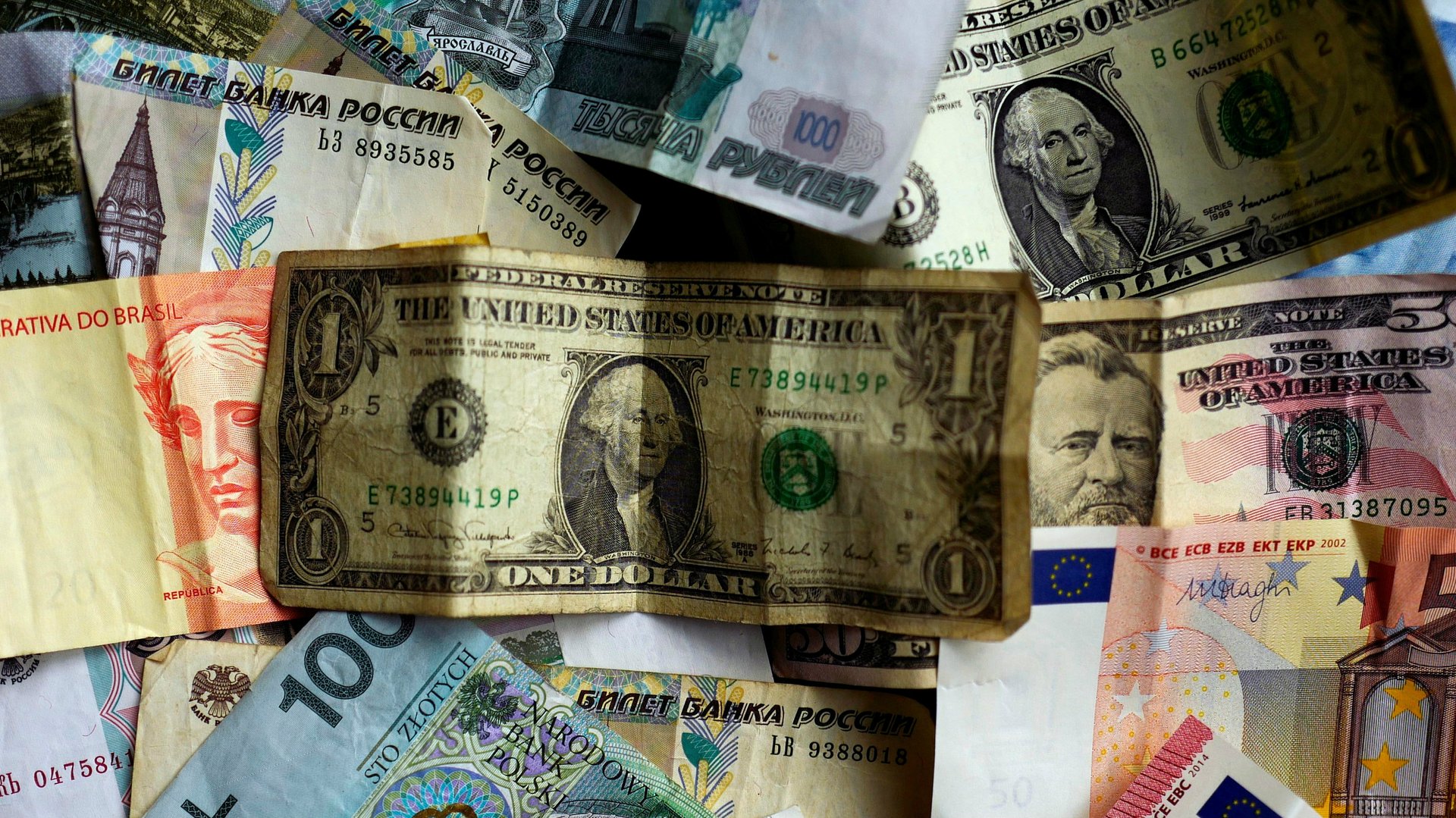The decline of US diplomacy could threaten the dollar’s global-reserve status
Barry Eichengreen, an economics professor at the University of California, Berkeley and expert in global currency systems, warns that the US dollar’s future as the all-mighty global-reserve currency is in danger. A deterioration in US relationships with other countries could lead central banks internationally to reconsider their reliance on the dollar, he wrote in a column for Project Syndicate this week.


Barry Eichengreen, an economics professor at the University of California, Berkeley and expert in global currency systems, warns that the US dollar’s future as the all-mighty global-reserve currency is in danger. A deterioration in US relationships with other countries could lead central banks internationally to reconsider their reliance on the dollar, he wrote in a column for Project Syndicate this week.
Eichengreen has spent decades diving into the mechanics of the international monetary system. His previous books include Exorbitant Privilege: The Rise and Fall of the Dollar and the Future of the International Monetary System and Global Imbalances and the Lessons of Bretton Woods.
Since the 1960s, some experts have been predicting the demise of the dollar’s dominance. They might finally be right, Eichengreen wrote. The US dollar is the chosen currency for almost 64% of the world’s allocated foreign-exchange reserves. This share has barely shifted in recent years even as the value of the dollar has whiplashed back and forth and a financial crisis shook the world. The dollar has fallen almost 10% this year against a basket of major currencies, though is still 17% higher than it was five years ago.
What could finally break the dollar’s strength would be a breakdown in military alliances, Eichengreen says:
US diplomatic and military links encourage America’s allies to hold dollars. States with their own nuclear weapons hold fewer dollars than countries that depend on the US for their security needs. Being in a military alliance with a reserve-currency-issuing country boosts the share of the partner’s foreign-exchange reserves held in that currency by roughly 30 percentage points. The evidence thus suggests that the share of reserves held in dollars would fall appreciably in the absence of this effect.
Concerns about US diplomacy are rife at the moment. At the top of that list is North Korea. Donald Trump’s rhetorical brinkmanship with Kim Jong-un raised fears that a miscommunication could lead to an “accident” of devastating consequences. Trump’s own secretary of state has reportedly called him a “moron.” The Trump administration has stepped back or out of international organizations that foster allegiances.
Eichengreen offers the example of South Korea and Japan. Both countries are believed to hold 80% of their international reserves in dollars, he writes. If the US’s military alliances were to “fray,” he’d expect the financial behavior of these countries and others to change dramatically. This would have negative implications for both the dollar’s exchange rate and US borrowing costs.
Right now, central banks are drawn to the US’s deep and liquid treasury-bond market and the near certainty the US will always repay its debts for the near future. However, there are increasingly more and more alternatives that are stable. About a year ago, the International Monetary Fund formally made the Chinese renminbi a reserve currency. Eichengreen writes that if the US has to offer concessions to North Korea that would probably take the form of reducing the number of US troops in the region. This would offer another opportunity for China to step into a US-shaped vacuum. “And where China leads geopolitically, its currency, the renminbi, is likely to follow,” Eichengreen concludes.